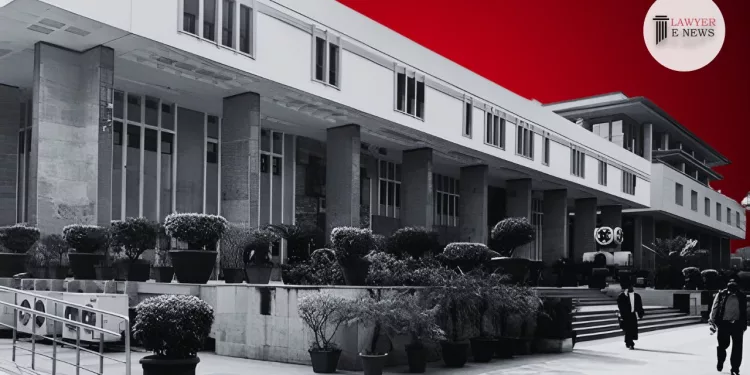Non-Appearance Despite Repeated Warnings – Persistent Evasion from CBI Bribery Case Proceedings Leads to Justified NBW: Delhi HC

In a significant ruling, the High Court of Delhi, presided over by Justice Swarana Kanta Sharma, dismissed the petition of Rajeev Jhawar, who sought quashing of Non-Bailable Warrants (NBW) issued against him in a money laundering case. The Court held that “the impugned order dated 02.02.2024 suffers from no illegality or infirmity” and justified the issuance of NBW due to the petitioner’s repeated failure to appear physically despite clear court orders.
Factual Background: The case revolves around allegations of bribery involving Rajeev Jhawar, the Managing Director of M/s. Usha Martin Ltd., for influencing a CBI investigation. Following an investigation by CBI and Directorate of Enforcement, Jhawar was accused under various sections of the Prevention of Corruption Act and the Prevention of Money Laundering Act.
Court’s Assessment:
The Court meticulously reviewed the sequence of events and submissions. Jhawar’s repeated non-compliance and absence, despite multiple opportunities given by the Court, played a crucial role in the decision. The Court observed that the petitioner, who had been residing in Singapore, failed to appear before the Trial Court and the Investigating Officer, thus necessitating the issuance of NBW as a coercive measure.
Key Observations by the Court:
Judicial Discretion in Issuing NBWs: The Court noted that the issuance of NBW is a balance between personal liberty and societal interest. It underscored that NBW should be issued to bring a person to court when summons or bailable warrants would be unlikely to have the desired result.
Non-Appearance of Accused: The Court remarked that the consistent avoidance of court proceedings by the accused warranted the issuance of NBW.
Impact on Judicial Process: The Court highlighted that repeated non-appearance impedes the judicial process, and issuing NBW is a necessary tool in such situations.
Decision: The High Court dismissed the application seeking quashing of NBW and upheld the issuance of NBW against Rajeev Jhawar. However, the Court clarified that the observations made should not affect the merits of the case.
Date of Decision: April 1, 2024
Rajeev Jhawar vs Directorate of Enforcement





